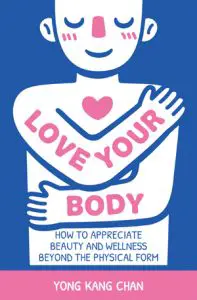Disclosure: There might be affiliate links on this page. As an Amazon Associate, I earn from qualifying purchases. This means I will earn a commission if you decide to make a purchase through my links but it will be at no additional cost to you.

Do you feel other people’s physical pain and discomfort in your own body?
Are you able to detect the illnesses of others without them telling you?
Do you often feel tired and drained without any apparent reason or symptoms?
If so, you may be a physical empath. As someone sensitive to the physical sensations of others, your ability to feel and understand their pain can be both a gift and a burden.
In this article, we will explore what it means to be a physical empath and provide 5 survival tips to help you navigate this unique experience.
What Is a Physical Empath?
A physical empath is an individual with heightened sensitivity to the physical states of those around them, often feeling others’ pain, discomfort, or physical ailments as if they were their own.
This unique empathic ability goes beyond typical empathy, allowing them to feel physical sensations not originating in their own body. This can include anything from headaches, body aches, and stomach pains to more serious conditions like chronic illnesses or injuries
Managing this deep connection to others’ physical experiences is crucial to prevent overwhelm and maintain balance.
8 Signs of a Physical Empath
Recognizing the signs of being a physical empath is the first step toward understanding and harnessing this unique trait in a balanced and positive way. Here are the common signs of a physical empath.
1. Deep Sensitivity to Physical Discomfort
You might notice an unusual sensitivity to physical sensations, feeling discomfort, or pain that isn’t your own but seems to emanate from those around you.
2. Unexpected Mood Swings
Your mood may shift when you are around certain individuals, aligning with their physical state or health condition, even if you are not consciously aware of it.
3. Feeling Overwhelmed in Crowded Spaces
Places with many people, such as shopping malls or concerts, can feel overwhelmingly taxing, as you are bombarded with physical sensations from others.
4. Heightened Intuition About Others’ Health
You may instinctively know about someone’s physical ailment or discomfort without them telling you.
5. Mirroring Physical Symptoms
Experiencing symptoms similar to those of people close to you, such as friends or family members, even when you are in perfect health.
6. Difficulty Watching Violence or Suffering
You may find it challenging to watch anything that involves physical pain, suffering, or violence, as you tend to feel the pain vicariously.
7. Sudden Fatigue
Feeling unexplained tiredness or energy loss, especially after interactions with people who are physically unwell or distressed.
8. Need for Alone Time
A need for solitude and personal space to recharge and discharge the physical sensations from others.
Physical empaths share many similar traits with emotional empaths and intuitive empaths. For instance, they all dislike prolonged periods in crowded spaces and require alone time to recharge. Therefore, it can be difficult to tell if you are a physical empath just by looking at the signs above.
A more effective approach involves comparing your experiences with those of other empaths. As an emotional and intuitive empath, I can tell you the main differences between these three empaths.
What Is the Difference Between a Physical and Emotional Empath?
The key distinction between physical and emotional empaths is what they primarily absorb from their surroundings. Physical empaths feel others’ physical states and sensations, absorbing discomfort, aches, and pains. Emotional empaths sense emotional states, soaking up feelings and energy.
Having said this, our physical and emotional states are deeply intertwined, influencing and echoing each other. So it is easy to mix up the two.
Imagine walking into a room where an argument has just taken place. An emotional empath might immediately sense the tension and the unresolved anger. They might feel this anger stirring within themselves, despite having no part in the argument. This anger they are feeling may trigger physical sensations in the body.
A physical empath, on the other hand, might begin to feel a tightness in their chest or heart pumping faster. They may later feel irritated and angry too because they do not know where this sudden physical discomfort is coming from or why.
As an emotional empath, even though I dislike seeing other people suffer from physical pain, I don’t feel their pain in my body. I would cringe and feel their emotional reactions to their pain, but I wouldn’t feel it physically.
What Is the Difference Between a Physical and Intuitive Empath?
While physical empaths pick up other people’s aches, symptoms, and pains, intuitive empaths may know someone is sick based on their intuition. They may get a sense of what is wrong and why but do not feel it in their body.
An intuitive empath may also pick up on someone’s illness before they even show symptoms, while a physical empath typically only feels the symptoms once they are present. This is because intuitive empaths are highly attuned to energy and can pick up on subtle changes in a person’s energetic field.
5 Survival Tips for a Physical Empath
1. Understand the difference between emotional and physical pain and practice mindfulness.
Physical and emotional well-being are closely linked, but it is important not to let physical sensations control your mood. If you experience unexplained physical discomfort, try accepting these sensations without getting upset or catastrophizing the situation. Negative emotions can impact your physical health and prolong your suffering.
Instead, to navigate discomfort more effectively, practice mindfulness. Observe your body sensations without judgment and focus on your breathing. Although these sudden physical sensations may arise unexpectedly, they are temporary and will fade away in due time.
2. Take care of your body.
Caring for your body is crucial for everyone, but it holds even greater significance for physical empaths. Whether the physical sensations you feel are your own or from others, once they manifest in your body, it becomes your responsibility to address them.
The way to address these sensations is the same, regardless of whether they stem from others or within yourself. Self-care practices like exercise, healthy eating, and sufficient sleep can help manage these physical symptoms. It is also essential to carve out time to recharge and replenish your energy reserves, especially when frequently exposed to people, particularly those who are unwell.
3. Set energetic boundaries.
Setting energetic boundaries is crucial for maintaining your well-being as a physical empath. This involves developing the ability to distinguish which energies you allow into your space and which you choose to keep at arm’s length.
Start by visualizing a protective bubble, light, or shield around you. This practice will help you differentiate your own physical sensations from those of others. Remember setting boundaries is not about pushing people away but protecting your energy space. It is okay to say no and prioritize your health and comfort. Taking control of your energetic environment enables you to engage with the world more fully and compassionately, without depleting your internal resources.
For healers or caregivers especially, setting boundaries is crucial to prevent absorbing the physical pain of others and burnout. Regularly check in with yourself and honestly assess what you can handle — not every burden needs to rest on your shoulders.
4. Ground yourself and clear your energy daily.
Creating boundaries is crucial, but daily grounding is equally important. This practice helps to clarify your energy. The more you fill your aura and body with your own energy, the less space there is for others’ energy. Grounding can be as simple as walking barefoot on grass, immersing yourself in nature, or engaging in yoga and meditation. You could also use crystals to ground yourself.
Furthermore, maintaining a healthy energetic space requires clearing any foreign energies you may have absorbed from others. Visualizing negative energy leaving your body and being replaced by positive, healing energy is a powerful way to achieve this. This routine can leave you feeling rejuvenated and prepared for the day ahead.
You can also explore other energy-clearing techniques such as Reiki, acupuncture, or energy healing sessions. These can help clear your energy pathways, making it easier for you to manage and release the physical sensations that are not yours.
To learn more, check out this curated list of best energy healing books.
5. Embrace your gift.
Even though being a physical empath can be challenging, it is also a unique gift. Your ability to feel and understand others’ pain can make you an excellent healer, caregiver, or friend. It allows you to offer genuine empathy and support because you truly understand someone’s physical discomfort from a personal perspective. You can provide a listening ear and a caring heart for those suffering.
Furthermore, your empathy gives you the power to identify physical ailments in others and help them seek the necessary treatment. You can guide them towards healing practices that you know are effective and have worked for you. For example, if you have found relief from chronic pain through acupuncture or alternative therapies, you can recommend it to someone else who is struggling. Or if you are a healer, you can incorporate your empathic abilities into your practice to provide more personalized and effective treatments for your clients.
So don’t shy away from your sensitivity. Instead, embrace it and use it for good.
Final Thoughts
By implementing the survival tips mentioned above, you can protect your energy while leveraging your gift to help others. As a physical empath, it is vital to not only pay attention to your body but also to your emotions and energetic field.
In my book, Love Your Body, you will enhance your body-mind connection and nurture self-love. By shifting your focus from ego to spirit, you will discover how to approach physical symptoms with more compassion and love.
To learn more, check out my book, Love Your Body.








